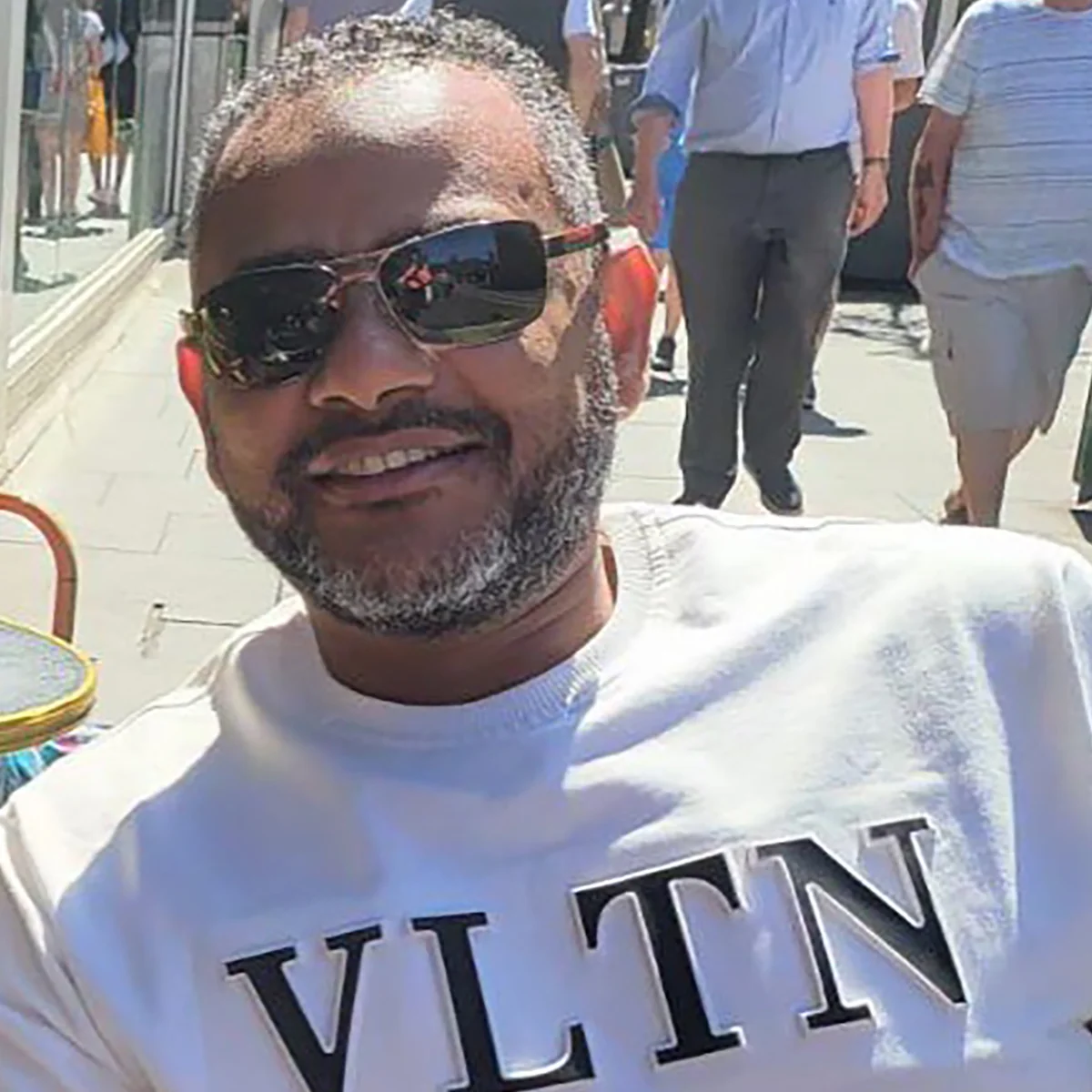A Family Holiday Turns Into a Nightmare
In August 2024, what began as a peaceful family holiday for 41-year-old British banking analyst Ahmed al-Doush quickly unraveled into a living nightmare. A respected professional at Bank of America, Ahmed had traveled to Saudi Arabia with his pregnant wife and their three young children for a brief vacation and to reconnect with extended family. As the family was preparing to return to Manchester, they were stopped at Riyadh’s King Khalid International Airport by plainclothes officers.
Ahmed was arrested on the spot without explanation. His wife and children were forced to board the flight without him, confused and terrified. It wasn’t until weeks later that the family learned why Ahmed had been detained. He was accused of publishing a social media post years earlier—one that had been deleted long before the trip and was, according to his legal team, unrelated to Saudi Arabia.
Ahmed’s family was left devastated. His wife, alone and pregnant in the UK, gave birth to their fourth child without him. Their eldest daughter, just nine years old, has reportedly developed anxiety and refuses to talk about the airport incident. The children ask every day when their father will come home.
The Mysterious Tweet and Vague Charges
At the heart of the case lies a single tweet from 2018. The content of the tweet remains unknown to the public and even to Ahmed’s legal defense team. What is known is that it allegedly referred to political developments in Sudan. The tweet was deleted years ago and was posted on an account that had only 37 followers. Despite this, Saudi authorities charged Ahmed under anti-terrorism and cybercrime laws, accusing him of undermining national security.

Adding further complexity to the case, Ahmed is reportedly acquainted with the son of a known Saudi dissident. However, his family insists this was a personal connection, not a political one. They emphasize that Ahmed is a devoted husband and father with no history of activism or political engagement.
The opaque nature of the charges has drawn criticism from international legal experts. They point out that no clear evidence has been presented and that the sentence of 10 years appears wildly disproportionate to the alleged offense. With no confirmed text of the tweet and no transparency in the proceedings, questions continue to mount.
Harsh Detention and Legal Irregularities
Ahmed was held in solitary confinement for over a month, without access to legal counsel or any contact with his family. During this time, he was reportedly interrogated without a lawyer present. For two months, he was denied consular access, a breach of diplomatic norms and international legal protections afforded to foreign nationals.
His eventual trial was held in Saudi Arabia’s Specialized Criminal Court, which typically handles terrorism-related cases. The proceedings were brief and closed to observers. Ahmed was convicted in early 2025 and sentenced to a decade behind bars. His legal representative, Haydee Dijkstal, has been vocal in her condemnation of the case, citing violations of both Saudi domestic law and international human rights standards.
According to Dijkstal, the defense was never shown the tweet in question and was not allowed to cross-examine prosecution witnesses. The case, she says, is “fundamentally flawed” and lacks any credible evidence of wrongdoing.
Global Human Rights Concerns
The case has triggered outrage among human rights organizations, who view it as yet another example of authoritarian overreach. Critics argue that Saudi Arabia’s laws concerning online expression are overly broad, allowing authorities to punish individuals for peaceful speech under the guise of national security.
Activists warn that such cases have become increasingly common in Saudi Arabia, where posts on platforms like Twitter and Instagram can result in years of imprisonment. While the country has pushed forward with modernization initiatives in recent years, including economic diversification and increased tourism, its approach to civil liberties remains highly restrictive.
The broader concern is that this could happen to anyone—especially foreigners—who may unknowingly violate Saudi Arabia’s vague online speech laws. Ahmed’s case sends a chilling message to social media users worldwide, many of whom would never imagine facing criminal charges years later for a long-deleted post.
UK Government Faces Pressure to Act
The UK Foreign Office has acknowledged the case and confirmed that consular support is being offered. However, critics have accused the British government of being slow to respond and overly cautious in its diplomacy. There are growing calls for the UK to apply greater pressure on Saudi Arabia to release Ahmed and review the circumstances of his detention.
Rights groups and members of parliament have demanded that the British government prioritize the welfare of its citizens abroad, especially when there are clear indications of unfair treatment. “We cannot stand by while a British father is torn from his family over a tweet no one has even seen,” said one MP during a recent parliamentary debate.
Ahmed’s wife has also spoken publicly, pleading with the UK government to intervene. She describes the pain of watching her children grow up without their father and the fear that he might not survive a decade in a foreign prison. “We just want him home,” she says. “He’s not a criminal. He’s a husband, a dad, and a kind-hearted man who made the mistake of saying something online—something that’s been taken completely out of context.”
The Bigger Picture: Speech in the Digital Age
This case raises difficult but urgent questions about the role of governments in regulating online speech and the responsibilities of social media users in foreign jurisdictions. While every country has its own laws, international norms exist to ensure fair treatment, especially when criminal charges are involved.
Legal experts argue that digital speech—no matter how controversial—should not be met with such harsh punishments, particularly when there is no evidence of harm. They also warn that this trend could have dangerous implications for freedom of speech globally.
As more individuals face prosecution for digital activity, the line between personal expression and criminal behavior becomes increasingly blurred. Ahmed’s story serves as a stark reminder of the risks that come with our interconnected world—and the need for clearer protections for individuals online.
Conclusion
Ahmed al-Doush’s imprisonment has become a powerful symbol of the struggle for free expression in an era of digital surveillance and authoritarian governance. As his family continues to fight for justice, they remain hopeful that public attention and international pressure will lead to his eventual release.
His story is not just about one man—it’s about every person who has ever posted a thought online and hoped to be understood, not punished. It is a call to governments, human rights organizations, and everyday citizens to speak out when silence is no longer an option.
Ahmed deserves his freedom. His children deserve their father. And the world deserves a future where words do not become chains.
The Maverick Behind Makaan: Tahir Sultan’s Journey of Cultural Alchemy



